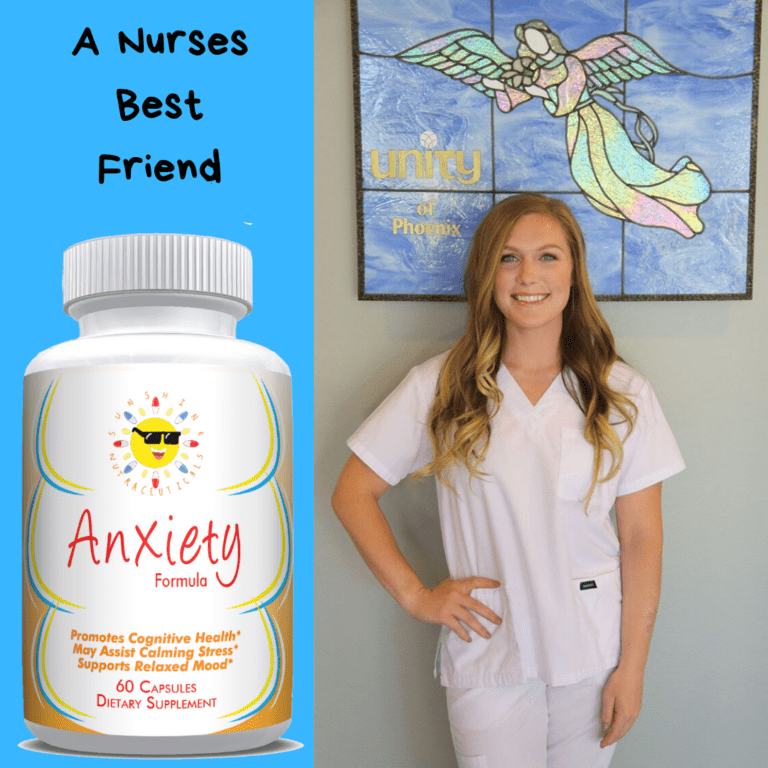
Acid reflux, also known as gastroesophageal reflux disease (GERD), is a common concern arising after gastric sleeve surgery. This surgical weight loss procedure, also called sleeve gastrectomy, involves reducing the stomach size to promote weight loss by limiting the amount of food consumed.
While this surgery has numerous benefits for individuals struggling with obesity and related health issues, it can lead to changes in the anatomy of the stomach that may contribute to acid reflux. Managing acid reflux after gastric sleeve surgery is essential to ensure the procedure’s success and maintain overall health and quality of life.
This post will explore strategies and lifestyle modifications to help individuals address and alleviate acid reflux post-gastric sleeve surgery.

Symptoms of GERD in Gastric Sleeve Patients
Here are common symptoms of GERD that may occur after a gastric sleeve procedure:
- Heartburn: This is the most common symptom of GERD. It typically presents as a burning sensation in the chest, often after meals or when lying down. Persistent heartburn can sometimes be severe and may be mistaken for a heart-related issue.
- Regurgitation is the sensation of stomach contents, including acid, flowing back into the mouth or throat. It can cause a sour or bitter taste in the mouth.
- Difficulty Swallowing: Also known as dysphagia, this symptom may arise if the narrowing of the stomach after gastric sleeve surgery causes food to move more slowly through the digestive tract.
- Chest Pain: GERD-related chest pain may be similar to heartburn but can also be mistaken for heart-related pain. It’s important to distinguish between the two, as a medical professional should always evaluate chest pain.
- Sore Throat: Repeated throat exposure to stomach acid can cause irritation and lead to a persistent sore throat or hoarseness.
- Chronic Cough: A cough that persists for an extended period, especially when it’s worse at night or in the early morning, can be a symptom of GERD. The reflux of stomach contents can irritate the airways and trigger a cough.
- Asthma Symptoms: Some individuals with GERD, including those who have had gastric sleeve surgery, may experience exacerbated asthma symptoms or new-onset asthma due to acid reflux irritating the airways.
- Laryngitis: Inflammation of the voice box (laryngitis) can result from stomach acid reaching the upper respiratory tract.

Understanding the Mechanism of Acid Reflux Post-Gastric Sleeve Surgery
Gastric sleeve surgery involves the removal of a significant portion of the stomach, leaving a smaller, banana-shaped stomach pouch. This alteration in stomach anatomy can impact the normal functions of digestion and lead to changes in how stomach contents, including stomach acid, are handled.
One of the primary factors contributing to acid reflux after gastric sleeve surgery is the reduction in stomach size. With a smaller stomach, there is less space to hold food, and the stomach can become full more quickly. This can cause increased pressure on the lower esophageal sphincter (LES), the muscle that separates the stomach from the esophagus.
When the pressure on the LES increases, it may become less effective at preventing stomach contents from flowing back into the esophagus, leading to acid reflux.

Treatment Options of Heartburn Symptoms After Gastric Bypass Surgery
1. Medication Management
One of the first steps in addressing acid reflux after gastric sleeve surgery is through medication management. Consulting with a healthcare professional, such as a gastroenterologist or the bariatric surgeon who performed the gastric sleeve surgery, is crucial to determine the most appropriate medications to control acid reflux symptoms. Common medications prescribed for acid reflux include proton pump inhibitors (PPIs) and H2 blockers.
2. Dietary Modifications
Making strategic changes to your diet can significantly help alleviate acid reflux symptoms. It’s essential to avoid foods that are known to trigger acid reflux, such as acidic, spicy, or fatty foods. These can irritate the stomach lining and exacerbate reflux. Instead, focus on a balanced diet with lean proteins, whole grains, fruits, and vegetables. Smaller, more frequent meals can help prevent the smaller stomach pouch overload, reducing the pressure on the LES.
3. Hydration Habits
Proper hydration is essential, but adjusting your drinking habits to minimize the risk of acid reflux is important. Drinking large amounts of liquid with meals can increase the pressure on the LES and contribute to reflux. To avoid this, sip fluids between meals rather than during meals. This practice ensures that you stay hydrated without compromising digestion.
4. Elevate Your Head
Elevating the head of your bed can be particularly helpful, especially when dealing with nighttime acid reflux. When you sleep with your upper body slightly elevated, gravity can prevent stomach contents from flowing back into the esophagus. This position can significantly reduce the occurrence and severity of nighttime acid reflux.
5. Lifestyle Changes
Several lifestyle modifications can positively impact acid reflux symptoms after gastric sleeve surgery. Smoking is a known contributor to acid reflux, and quitting smoking can significantly alleviate symptoms. Limiting alcohol and caffeine intake can also help reduce the risk of reflux. Additionally, if you’re overweight, losing weight through
a healthy diet and regular exercise can alleviate pressure on the stomach and improve reflux symptoms.
6. Stress Management
Stress is often overlooked as a potential contributor to acid reflux. However, stress can exacerbate the symptoms of GERD. Incorporating stress-reducing techniques into your daily routine, such as meditation, yoga, deep breathing exercises, or mindfulness practices, can positively impact your mental well-being and digestive health.
7. Regular Follow-Up
Gastric sleeve surgery has long-term effects on your digestive system and overall health. Follow-up appointments enable your healthcare provider to monitor your health over the years, detect potential issues early, and recommend additional screenings or tests as needed. If GERD symptoms are present, your provider can discuss dietary habits, potential prescription medications, and other treatment options available to help alleviate the problem.

What Can Happen if GERD is Left Untreated:
Untreated gastroesophageal reflux disease (GERD) can lead to a range of complications that can affect your quality of life and overall health. It’s essential to manage GERD to prevent these potential issues. Here are some of the complications that can arise if GERD is left untreated:
- Esophagitis: Chronic exposure to stomach acid can cause inflammation and damage to the lining of the esophagus, a condition known as esophagitis. This can lead to discomfort, pain, and difficulty swallowing.
- Strictures: Repeated inflammation and scarring of the esophagus can lead to the formation of strictures, which are narrowed areas in the esophagus. Strictures can make swallowing even more challenging and may require medical intervention to widen the esophagus.
- Barrett’s Esophagus: Chronic acid reflux can sometimes lead to changes in the cells lining the lower esophagus. This condition is known as Barrett’s esophagus and is a risk factor for esophageal cancer.
- Esophageal Ulcers: Stomach acid can cause ulcers in the esophagus, leading to pain, bleeding, and potential complications if left untreated.
- Respiratory Issues: GERD can trigger or exacerbate respiratory issues, such as asthma or chronic cough, as stomach acid can reach the upper respiratory tract and irritate the airways.
- Dental Problems: Stomach acid in the mouth due to regurgitation can lead to dental issues, including enamel erosion, bad breath, and an increased risk of cavities.
- Chest Pain: Chronic GERD symptoms, if not properly evaluated, can be mistaken for heart-related chest pain (angina). It’s crucial to differentiate between GERD-related symptoms and cardiac issues.
- Sleep Disturbances: Nighttime GERD symptoms can disrupt sleep, leading to poor sleep quality, daytime fatigue, and reduced overall well-being.
- Weight Loss and Malnutrition: Severe GERD symptoms, such as difficulty swallowing or chronic vomiting, can result in weight loss and potential nutritional deficiencies.
- Esophageal Cancer: Although the risk is relatively low, long-term untreated GERD, especially when combined with other risk factors such as smoking, obesity, or Barrett’s esophagus, can increase the risk of developing esophageal cancer.

Acid reflux after gastric sleeve surgery is a common concern that requires attention and proactive management. The changes in stomach anatomy following the surgery can contribute to developing or exacerbating acid reflux symptoms. By working closely with healthcare professionals, implementing dietary modifications, adjusting hydration habits, elevating the head during sleep, making lifestyle changes, managing stress, and staying committed to regular follow-up appointments, individuals can effectively address acid reflux and enjoy the many benefits of their gastric sleeve surgery, including long-term weight loss and improved health. It’s crucial to remember that each individual’s situation is unique, so personalized advice from a healthcare provider is essential to determine the most appropriate strategies for managing acid reflux post-gastric sleeve surgery.

Michael J. Brown, RPh, BCPS, BCPP
Mr. Brown is a Clinical Pharmacist specializing in pharmacotherapy and psychiatry.
Feel free to send Michael a message using this link.
Disclosure: This post may contain affiliate links, meaning, at no additional cost to you, I may earn a commission if you click on, or make a purchase through a third-party link.




